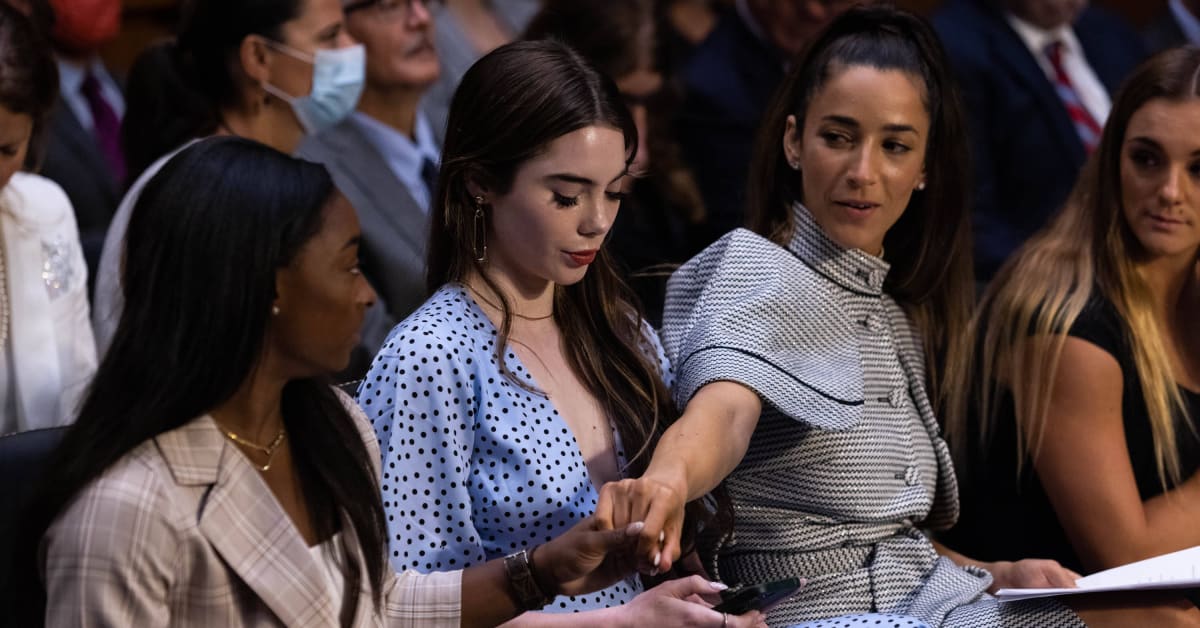
Larry Nassar Survivors Filing Lawsuits Seeking $1 Billion From FBI
Content Warning: This story contains graphic language of a sexual nature.
More than 90 women who say they were sexually assaulted by former USA Gymnastics doctor Larry Nassar are planning to file lawsuits seeking more than $1 billion against the FBI on Wednesday for the agency’s failure to stop Nassar after receiving credible allegations against him, according to The New York Times.
The decision to take additional legal action is an escalation from the 13 women who filed federal torts claims against the FBI in late April, seeking $10 million each from the FBI for a total of $130 million.
The recent wave of lawsuits comes two weeks after the Department of Justice decided not to prosecute two former FBI agents accused of bungling the bureau’s 2015 investigation. The DOJ had previously conducted an investigation into the FBI’s handling of the allegations and found that errors were made when the bureau was made aware of the accounts against Nassar in 2015. Specifically, two FBI agents in Indianapolis committed “fundamental errors” for not acting sooner on the allegations of abuse against the doctor.
Nassar was not arrested until December 2016. FBI agents discovered more than 37,000 child pornography images and tapes, one of which included the doctor himself, on computer discs he had attempted to discard.
The plaintiffs in the latest set of lawsuits include Olympic gymnastics gold medalists Simone Biles, Aly Raisman and McKayla Maroney and national gymnastics medalist Maggie Nichols. The plaintiffs are seeking different amounts, but their claim will total to an excess of $1 billion their lawyer, John C. Manly, said in a statement to The Times.
“My fellow survivors and I were betrayed by every institution that was supposed to protect us—the U.S. Olympic Committee, USA Gymnastics, the FBI and now the Department of Justice,” Maroney said in a statement, per The Times. “It is clear that the only path to justice and healing is through the legal process.”
The DOJ’s investigation confirmed that then USAG president Steve Penny reported abuse allegations from three different gymnasts to the Indianapolis FBI field office. Although USA Gymnastics is based in Indianapolis, the federal law enforcement agency and the USAO office determined they did not have jurisdiction.
As Michigan Radio’s Kate Wells highlighted, the FBI field office spoke to only one of the three gymnasts who came forward, and Indianapolis FBI told Penny that the case would be sent to the Michigan FBI office. However, it never was.
Penny and the FBI did not notify Michigan State, Michigan police or USAG athletes about the allegations in 2015. Several months went by, and USA Gymnastics reported the same concerns to the L.A. office in ‘16. That office then called Indy, which claimed that it already sent the file to Lansing; however, there’s “no evidence that such a document had been sent.”
Although the DOJ report focused heavily on the Indianapolis field office, it was not the only one found at fault. Failures were pointed out in three other agency divisions—Detroit, Los Angeles and Portland, Maine. The L.A. field office opened a “federal sexual tourism” probe; however, it failed to notify local or state police despite evidence showing that Nassar violated state law.
The office “did not take any action to mitigate the risk to gymnasts that Nassar continued to treat.”
“The FBI knew that Larry Nassar was a danger to children when his abuse of me was first reported in September of 2015,” Nichols, the first Nassar victim whose case was reported to the FBI’s Indianapolis field office, said in a statement, per NBC News. “For 421 days they worked with USA Gymnastics and USOPC to hide this information from the public and allowed Nassar to continue molesting young women and girls. It is time for the FBI to be held accountable.”
The former doctor was sentenced to 60 years on child pornography charges and then up to 175 years after pleading guilty to multiple counts of criminal sexual conduct.




